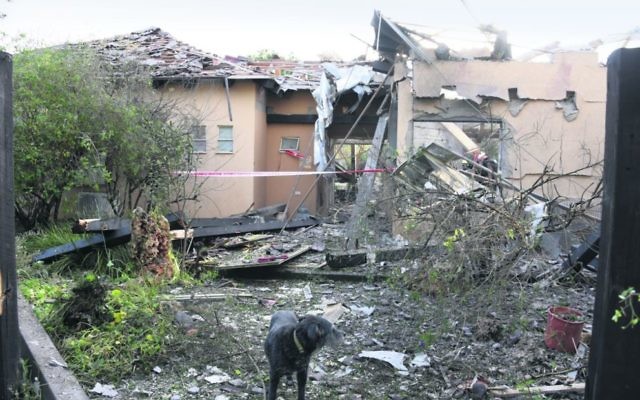What lies behind the latest Hamas attacks?
It would appear that Israel is on the brink of full-scale war against Hamas again, writes Rebecca Davis. But, why now?
ONE thousand reservists have been deployed, and scores of Israeli tanks wait at the Gaza border, writes Rebecca Davis.
Following the rocket attack which hit a home in Mishmeret early last Monday morning and the ensuing barrage of more than 30 rockets which pelted the south, it would appear that Israel is on the brink of full-scale war against Hamas. Again.
But, why now?
Undeniably, the promise of the upcoming Israeli election in less than two weeks places Prime Minister Benjamin Netanyahu in quite the position – and Hamas seeks to back him into a corner which they dictate. But Eran Lerman, the former deputy director of Israel’s National Security Council and vice-president of the Jerusalem Institute for Strategy and Security, warned that it is a “very dangerous conclusion [to assume] that Israel’s hands may be tied”.
Lerman also pointed out the “delicate challenge” before Netanyahu: “If he reacts quite aggressively, there will be comments that the blood of the people of central Israel seems to be thicker than that of people in the south.
“If he does not respond, there will be comments about a government who does nothing in the face of far-reaching and brazen provocation,” Lerman said.
And that is an argument that already plays into the hands of Netanyahu’s critical political opponents Benny Gantz and Naftali Bennett.
But then, the latest agitation could be less of an overt act against Israel, and more about creating a diversion from Hamas’ splintering support and hold over the people of Gaza.
Just a couple of weeks ago, video footage showed hordes of Gazan civilians taking to the street in protest at the high cost of living and immense rates of unemployment, demanding Hamas be overthrown.
The rebellion is a daring escalation from the echoed rumblings of discontent among a people controlled by a terror group wielding the threat of torture.
The assault could also be indicative of the ever-rancorous relations which exist between Hamas and Fatah. Hamas blamed the public demonstrations on Fatah, and arrested Fatah activists. A Fatah spokesman accused Hamas of “launching missiles in order to put down the uprising of the starving”, labelling it “an unacceptable act, overt and obvious to all” in Al-Hayat al-Jadida, the official daily newspaper of the Palestinian National Authority.
As Itamar Marcus, director of Palestinian Media Watch poignantly observed, “Tragically, Hamas and Fatah are fighting each other with the only weapon they have that assures popularity among the broad spectrum of Palestinians: attempting to kill Israelis.”
Whether the aim of the attacks is to put Netanyahu in a challenging position, distract from Hamas’ desperate internal situation, or refocus the spotlight on the approaching one year mark of the weekly March of Return demonstrations on the Gaza border, ordinary Israelis remain resolute, and life goes on.
Rabbi Aharon Tzohar, who recently visited Australia as a guest of JNF, lives in Naveh, a community just six kilometres from Gaza. At 6am on Tuesday, he walked into his kitchen to find his young son reading Psalms and praying for the success of Israel’s soldiers.
Hours later, Rabbi Tzohar was one of the 1000 soldiers deployed for reservist duty.
“When I speak abroad I tell people we are a strong nation,” he shared with The AJN as he made his way to his post.
“Make no mistake, two thousand years we waited and we are prepared for anything it takes to realise the Zionist dream in the spirit of the prophets.
“And we will not rest until we defeat our cowardly enemies who are targeting civilians.”
Rebecca Davis is features editor of The AJN.


comments